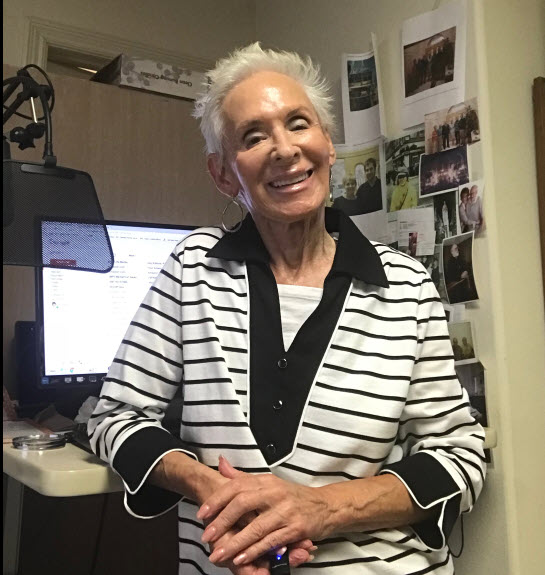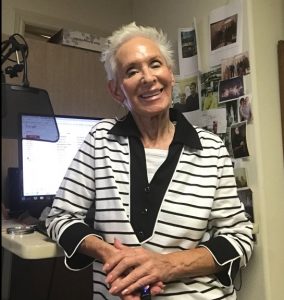

I recently moved from California to Arizona, and the number of books and papers I’d saved over the years was enormous. I considered all of it essential, but much of it had go. I felt like I lost my best friends. Talk about stress!
One treasure that survived the move was a 2003 press release from the Lewin Group [i] titled “New Study Finds Increased Multivitamin Use By the Elderly Could Save Medicare $1.6 Billion”.
Excerpt from the release: “While the evidence strongly supports the beneficial effects of multivitamins in improved immune functioning and a reduction in the risk of heart disease, researchers also reviewed literature that examined the preventive benefits of multivitamin supplementation as it relates to colorectal cancer, prostate cancer, diabetes and osteoporosis. . . “
Think about what that could mean, especially for those in a nursing home. I doubt that residents are routinely given a daily vitamin. I believe one reason COVID killed so many nursing home residents was poor nutrition status. Their nutrient-deficient immune system couldn’t handle the virus.
Remember, this was published in 2003, and little has changed since then. The American people are still eating primarily a nutritionally bankrupt fast food, out-of-a-box diet. More people take supplements to correct a nutritional deficiency, but many supplements are taken only occasionally, and recommended dosages are often inadequate.
For example, according to the Mayo Clinic, the recommended daily amount of vitamin C for adult men is 90 milligrams. For adult women it’s 75 milligrams with a caution against taking more. (I’ve been taking mega doses of vitamin C for decades, and as you can tell, it hasn’t killed me yet.). The Linus Pauling Institute at Oregon State University advocates 400 mg/day of vitamin C, but who follows that “crazy” advice? The chance of getting 400 mg/day in most daily diets is very little. What is the problem? It is a general animosity toward adequate nutritional supplementation.
Nutrition education in medical schools is entirely insufficient. In “Status of nutrition education in medical schools” we read, “Numerous entreaties have been made over the past two decades to improve the nutrition knowledge and skills of medical students and physicians. However, most graduating medical students continue to rate their nutrition preparation as inadequate.”
Indeed it is inadequate. Unless your doctor is self-taught about good nutrition, please don’t bother to ask him what to eat. He may sneer at your suggestion of taking vitamins and tell you, “Just eat a good diet, and you will be okay.” He may eat cold pizza for breakfast while driving to the office which is an indication he has no idea what constitutes a good diet.
We boast we have the best “health care” system in the world. Yet, the term “health care” primarily refers to the pharmaceutical industry’s medications, which is not “health care,” but for-profit business. Big Phama cranks out a parade of expensive and often dangerous drugs, many with side effects worse than the condition treated. That the pharmaceutical industry has the gall to advertise their products on TV (“Ask your doctor, if XYZ is right for you”) is despicable.
Relative to the above, consider this: 34% of older adults in the US are prescribed potentially inappropriate drugs. According to a new study, inappropriate medications given to older adults is linked to increased hospitalizations, and it costs patients, on average, more than $450 per year. According to the U.S. Food and Drug Administration (FDA), 100,000 Americans die from reactions to prescription drugs each year, making this the fourth leading cause of death in the U.S.
Such potentially inappropriate drugs may be prescribed by the charming doctor you love and trust so much, yet he/she may know little or nothing about a new medication other than what is learned from a salesperson (with perhaps only a high school education) visiting the office who has memorized a script and buzz words provided by the drug company she works for.
If you are interested in improving your nutrition and increasing chances of a healthier and better looking old age, what do you do? For starters, do the easy thing: clean up your diet. Get rid of as many refined carbohydrates as possible. Read product labels for carbohydrate content. I know how difficult it is to eliminate sugar, but it’s a killer. Sparingly, I use Stevia instead
Eat: eggs, fresh fruit and veggies, antibiotic-free and hormone-free meat, and fish. Eat simply. Avoid watching TV cooking shows that whet the appetite for sugar. Try delicious Hemp Hearts on your Coach’s oatmeal. (Both available at Costco). Enjoy with organic blueberries (frozen from Costco). If you haven’t tried almond milk, please do so. You will know you are on the right track when your supermarket grocery shopping skips the middle aisles and instead, focuses on the outer fresh fruit and veggie aisle.
If you are not taking supplements and would like to start, go easy on yourself. Start with a quality daily multivitamin such as Centrum. A favorite resource of mine is Life Extension magazine. If you are a newbie, don’t let articles in the magazine scare you. There is a lot we all need to know to help us achieve healthy longevity. Remember, your health is YOUR responsibility, not your doctor’s.
[i] From the Lewin Group: The Lewin Group offers policy research analytics and consulting services. We maintain independence and integrity in all our work. Our impartial expertise helps our clients address the real and pressing challenges of health care with proven, practical solutions.Here is the Lewin Press Release
—————–
Bonus! Bonus! Bonus!
If you don’t want or like to cook or don’t have time to cook, here’s one of my simple nutritious solutions:
Get a variety of favorite frozen veggies and fresh herbs, plus a pound of organic hamburger meat. Put it all into a slow cooker along with enough Kettle and Fire (or other brand) bone broth to cover and add favorite seasonings. When veggies and meat are done, you have enough soup for a week. It will get more flavorful with age. If it gets too thick, add more bone broth as needed. If it needs more seasoning I use a product called Spike to taste. I enjoy a small bowl of it with half a buttered toasted croissant from Costco. For butter, I make a soft spread by blending a bar of softened Kerrygold Pure Irish Butter with an equal amount of Costco virgin olive oil. A Spartan diet? For sure, and it won’t make you fat.
Yes! Too many were brought up to believe that the doctor, and only the doctor, had any input and control–via medications solely–over their health and maintenance. Vitamins, minerals, foods and beverages modifications, etc. — I recall a doctor, decades ago, waving these things and me off when I brought them up.